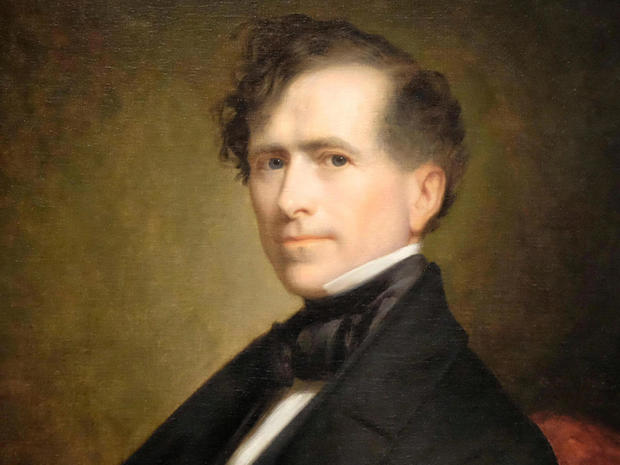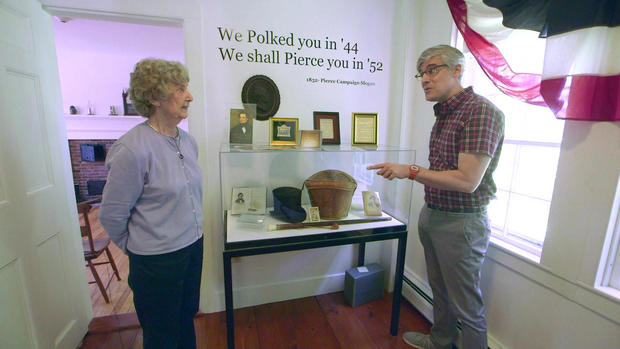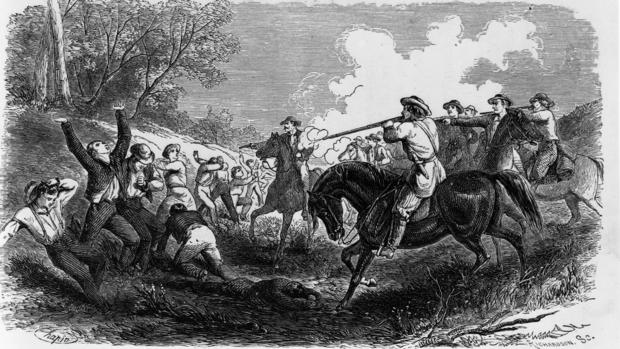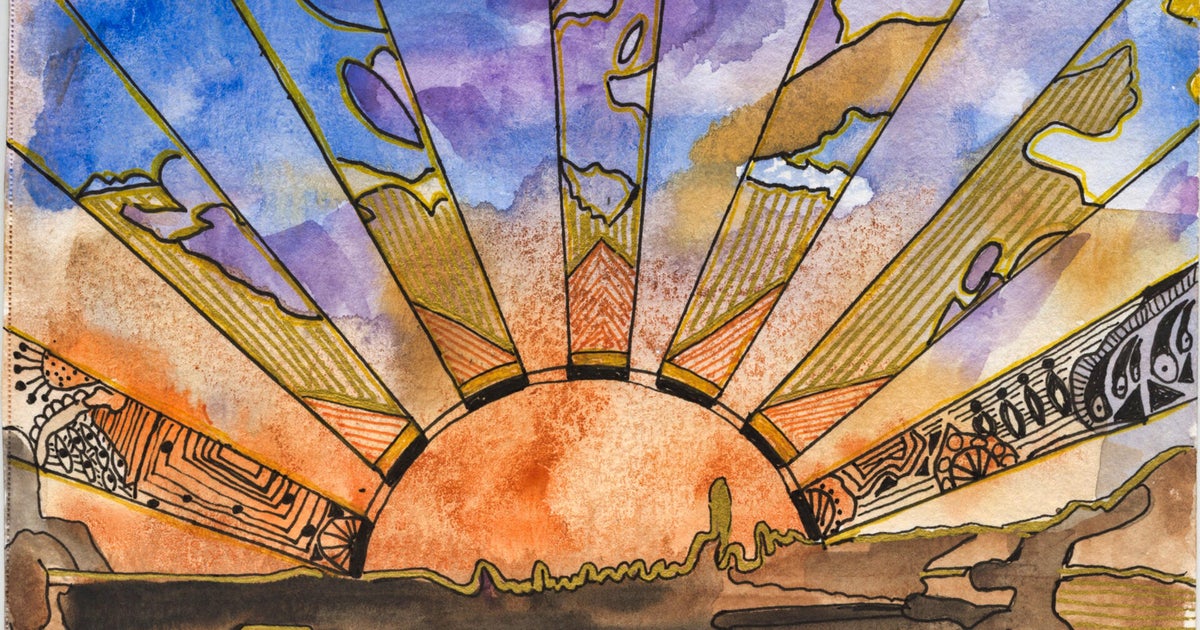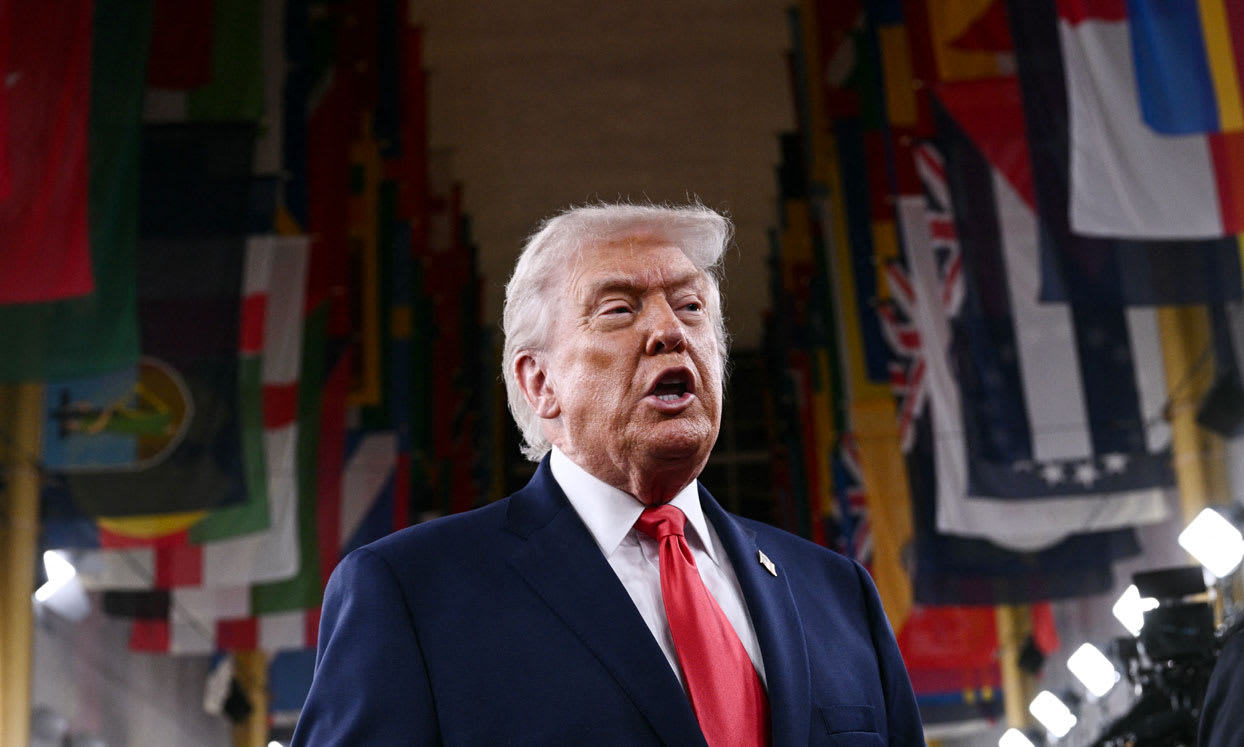Franklin Pierce: America's handsomest president?
Andrew Johnson … Warren Harding … Millard Fillmore … No survey of our worst presidents would be complete without our 14th president, Franklin Pierce, the only president from New Hampshire.
"The funny thing is, people from New Hampshire don't really like him that much," said Joan Woodhead, president of the Pierce Brigade, founded in 1966 to rescue Concord, New Hampshire's Pierce Manse from destruction – and to salvage the reputation of the man who once lived here.
Correspondent Mo Rocca asked, "He was known as a really good-looking president. Is that right?"
"Yes, he was," said Woodhead. "Harry Truman thought he was the most handsome president we had in the White House up until his time."
"But why is Harry Truman the arbiter of good-looking presidents?"
"Well, I don't know. That's the only comment we have from another president."
University of Virginia's Michael Holt agrees – "He may have been the most handsome man ever to serve in the White House" – and adds that Pierce had a great personality. "He was probably the most amiable president we've ever had. Even historians who were hostile to him remark about how pleasant and friendly he was."
At Bowdoin College, he began a lifelong friendship with the future great American novelist Nathaniel Hawthorne. Hawthorne would write Pierce's campaign biography.
"It's probably not as interesting as some of his novels," said Woodhead.
"It's no 'Scarlet Letter'!" said Rocca.
"No, it's no 'Scarlet Letter.' Thank God for that, right?"
Injured after falling off his horse during the Mexican-American War, Pierce, a Democrat, served in both houses of Congress. A compromise candidate, he won his party's nomination for the presidency on the 49th ballot. His party's campaign slogan? "We Polked you in '44. We shall Pierce you in '52." Pierce was elected in a landslide.
Rocca asked historian Michael Holt, "What good things did he do in office?"
"Well …" he laughed. "Uh … well … "
While Holt composes himself, let's return to the Pierce Manse, where we learn about Pierce's reforms to the Postal Service, such as the perforation of stamps, which began under him.
"So that it was easier for people to separate the stamps," Woodhead explained.
"Yeah, he's the postage stamp guy!" said Gary Sparks, a volunteer guide at Pierce Manse. "He also helped ensure that American farmers had a goodly supply of guano."
The Guano Islands Act of 1856, signed into law by Pierce, scooped up the rights to unclaimed islands rich with guano (a.k.a. bird poop), a natural fertilizer prized at the time by American farmers. FYI, Midway, site of a pivotal battle in World War II, is one of those islands.
So, why then does Pierce have such a crappy reputation?
"Because he played a major role in bringing on the Civil War," Holt replied.
Yeah, there's that. In 1854 Pierce signed into law the Kansas-Nebraska Act, allowing voters in the Kansas and Nebraska territories to decide whether to allow slavery within their borders – negating the earlier Missouri Compromise, which had prohibited slavery in those areas.
Holt said, "He made a terrible mistake in endorsing the Kansas-Nebraska Act and then jumping in with both feet on the pro-Southern side."
In Kansas, violence broke out between pro- and anti-slavery forces, in a kind of preview of the Civil War.
The outrage in Northern states was so intense it led to the creation of the Republican Party. "He thought making concessions to Southerners was what was necessary to preserve the Union," said Holt.
Not even Pierce's hometown could forgive him for the Kansas-Nebraska Act. According to Holt, "They burned him in effigy in Concord because of his pro-Southern actions."
Pierce's political woes could only be matched by his personal ones. All three of his and his wife Jane's children died young. Eleven-year-old Benny, the last surviving one, was killed in a train accident traveling with his parents just two months before Pierce's inauguration.
The grief was almost more than first lady Jane Pierce could bear.
"She went into mourning," said Holt, "draping the White House in black, and really didn't come out in public until almost the end of 1854, almost two full years into the administration."
After a single term in office, Pierce sought renomination, but was rejected by his party. He returned to New Hampshire in 1857, to a home that later burned down. Only the front steps of the house remain.
After President Abraham Lincoln was assassinated in 1865, every house on this stretch except Pierce's displayed an American flag in commemoration of the Great Emancipator. An angry mob assembled asking why Pierce wasn't paying respect. He mollified the crowd by explaining that he, too, was sad, but that his long years of service spoke louder than the display of a flag.
Franklin Pierce died in 1869 at age 64.
Rocca asked guide Gary Sparks, "Does Franklin Pierce deserve his ranking as one of our worst Presidents?"
"I'm not trying to dodge this – I don't think Franklin Pierce comes down as one of our best Presidents in any way," Sparks replied. "But he wasn't a terrible, awful person!"
For more info:
- Pierce Manse, Concord, N.H.
- Michael Holt, Department of History, University Of Virginia
- Franklin Pierce (whitehouse.gov)
Story produced by Mary Lou Teel. Editor: George Pozderec.
More presidential history from Mo Rocca:
- Mo Rocca with lively thoughts about our deceased presidents
- Time will tell: Historians on judging presidential leadership
- The Herbert Hoover you didn't know
- First families: A reunion of presidential relatives
- Painting the presidents
- Andrew Johnson: The unfortunate president
- Chester A. Arthur and the original "birther" controversy
- Worst president ever: The ignominy of James Buchanan
- The long and short of President William Henry Harrison
- James Polk and America's "Forgotten War" south of the border
- President John Tyler's great genes
- How doctors killed President James Garfield
- President Warren Harding: Sex, scandal and death in the White House
- Ulysses S. Grant's last battle
- The passions of Woodrow Wilson
- Eleanor Roosevelt, first lady and humanitarian
- Lady Bird Johnson, first lady and diarist
